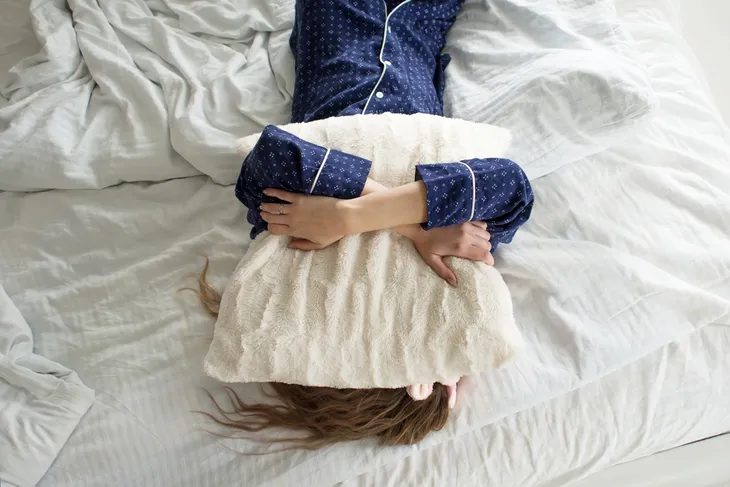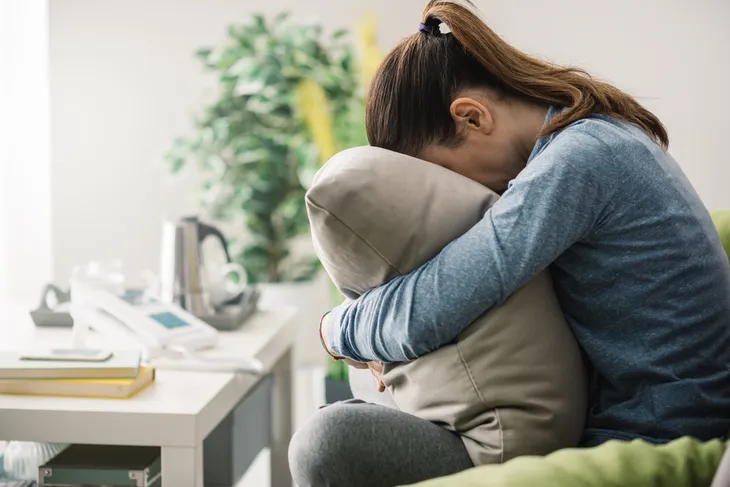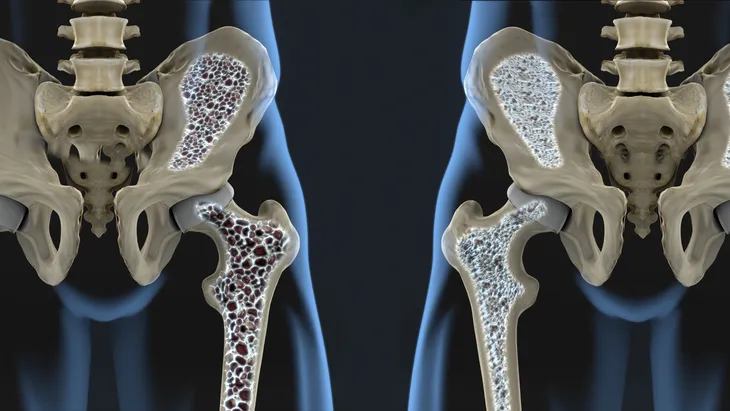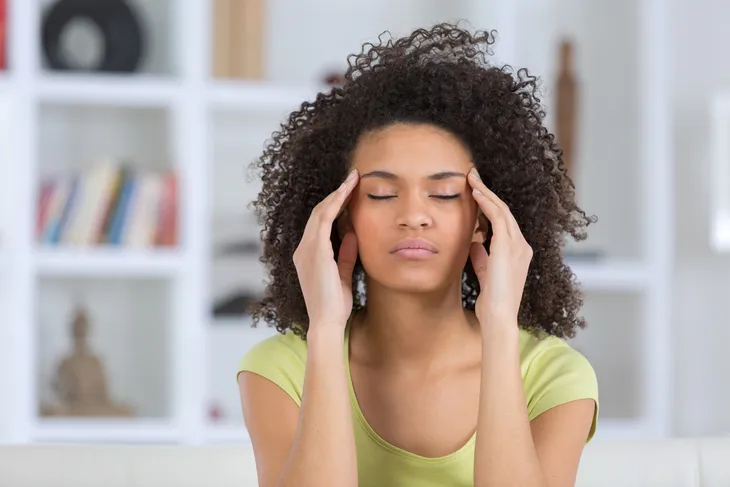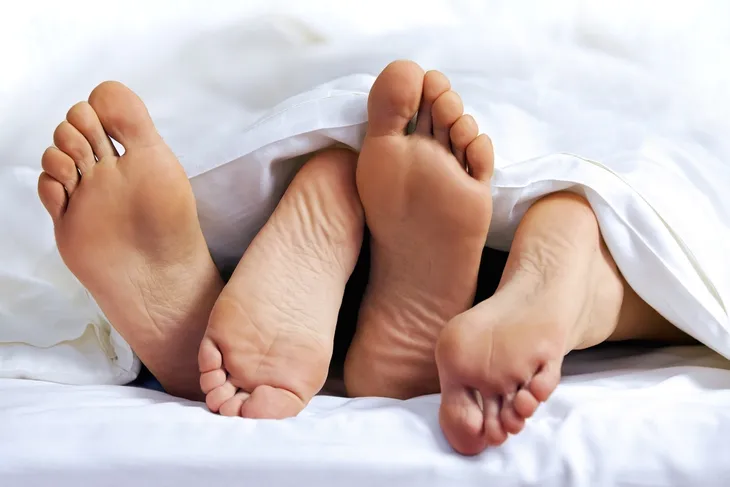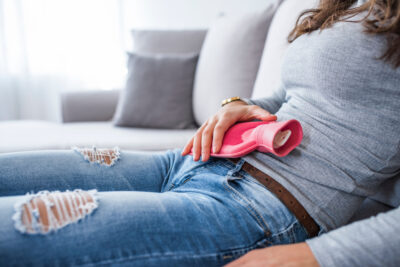Many of us might not consider testosterone, a hormone in the androgen (or male) category, as vital for women. However, a woman’s sexual health can be extremely affected by decreased testosterone levels (or low T).
Testosterone hormone in women is emitted from the ovaries and adrenal glands, with levels of the hormone naturally increasing during puberty and pregnancy and decreasing with age and the onset of menopause. However, a sudden drop in testosterone can affect a woman’s libido, energy levels, and mood.
Here are 10 common signs of low testosterone in women…
Fatigue
Women with decreased testosterone levels often notice a sudden drop in their energy levels. This can manifest in several ways; you may have a hard time finding the energy to get out of bed in the morning, or you just may feel drained of energy throughout the day. Physical activities which don’t normally cause fatigue may leave you feeling spent or exhausted, and you may struggle to get through what would otherwise be a normal day or work or leisure.
One of the telltale signs that your chronic fatigue may have an underlying cause (and could therefore be related to low testosterone levels) is that is unrelieved by sleep. In other words, if you’re finding yourself chronically tired even though you’re getting lots of sleep at night or supplementing with naps throughout the day, a hormone deficiency could be the underlying problem. However, lots of medical conditions can cause fatigue, so you’ll have to see a doctor for a diagnosis.
Disrupted Sleep
Low levels of testosterone in women can also interrupt healthy sleep patterns. For instance, affected women may suffer bouts of insomnia, sleep apnea, or just struggle with frequent waking and other sleep disturbances during the night. Of these symptoms, sleep apnea is the most serious and troublesome. Over extended periods of time, sleep apnea increases your risk for heart problems. It needs to be diagnosed and treated to reduce your risk of these types of serious effects.
Researchers aren’t quite sure why reduced testosterone levels in women cause sleep disturbances, but the prevailing theory is that they may cause other imbalances in important regulatory hormones and brain chemicals that promote healthy, restful sleep. However, disrupted sleep patterns may result from any number of medical problems, or they might not signal an underlying problem at all. From a general standpoint, you should seek medical attention if your normal sleep habits are disrupted for four to six weeks, or longer.
Weight Gain
Weight gain commonly shows itself in women affected by low testosterone. For instance, a loss of muscle tissue may be followed by a sudden unexplained increase in body fat, particularly around the area of the abdomen. In fact, many researchers now believe that diminishing testosterone levels is a leading cause of midlife weight gain in women, if not the single most common culprit.
The weight gain associated with reduced levels of testosterone in women may also present alongside other noticeable changes in physiology. In particular, women with diminishing testosterone levels also experience changes in muscle tone and bone density, which can have a significant impact on the appearance and character of the body. These symptoms usually start to appear when women are in their mid-30s, but all too often, they’re chalked up to simply being a part of getting older when, in fact, they are treatable and, in many cases, reversible.
Decreased Libido
As we age, many of us tend to be less sexually active. However, when testosterone is low, women experience more sudden and extreme sexual changes—including reduced libido, vaginal dryness that makes intercourse very painful, and a general disinterest in sexual intimacy. This happens because testosterone plays an extremely important role in sexual arousal in both men and women, and people of both genders who are suffering from deficiencies will naturally have a decreased interest in sex.
Hormone replacement therapies and other treatments can restore your sex drive to normal levels, but you should proceed with caution, and you should never self-treat a suspected testosterone deficiency. Mood swings, the development of male secondary sex characteristics, increased body hair, chronic headaches and sleep apnea can all result from the improper treatment of reduced androgen levels in women. If you’re going to take testosterone supplements, they must be at the proper dosage to minimize your risk of these side effects.
Depression
Depression, mood swings, and other unexplained emotional symptoms can be caused by decreased testosterone levels. These symptoms occur because the hormone helps regulate more than just energy levels and libido; it also plays an important role in mood stabilization and mental focus. Other neuropsychiatric symptoms of low androgen levels in women include a generalized lack of motivation and a loss of interest in activities the patient once enjoyed. Patients also frequently complain of a pervasively “low mood,” which may not descend into full-blown depression but is nonetheless constantly present.
The mood-based symptoms of reduced testosterone levels in women are often misdiagnosed and treated with antidepressants and other drugs, when hormone therapy holds the potential to yield similar results with a lower risk of complications and side effects. While these symptoms may be among the most noticeable, you should evaluate yourself carefully for the presence of others to reduce your risk of a root-cause misdiagnosis.
Osteoporosis
Bone deterioration is another common result of lowered testosterone in women, though this symptoms typically does not appear right away, but rather develops gradually over time. Testosterone plays an important role in bone production and maintenance, and when levels diminish, the body is no longer able to maintain bones as well as it once did. In fact, declining testosterone production is one of the leading causes of osteoporosis, a medical condition which affects millions of women, most of them over the age of 50.
Women with osteoporosis are more susceptible to bone breaks and fractures, which may not sound serious, but can actually cause severe complications, particularly in older patients. Fortunately, there are many different treatment options available to women who have osteoporosis, many of which cause an appreciable rise in bone strength. Your doctor can check for bone problems using simple, inexpensive tests, including X-rays.
Irregular periods
The sudden drop in the testosterone hormone can also cause changes in menstruation. In most cases, these changes manifest through irregularity of the menstrual cycle and lighter-than-normal periods. In older women, and in women with severely depleted levels of testosterone, it is possible to miss periods altogether. While women naturally experience decreases in their testosterone levels over time, beginning in their late teens or early 20s, menstrual irregularities are a sign that the problem has progressed to the point where treatment is necessary.
Women with low levels of testosterone may also experience other symptoms of menopause and perimenopause. Specifically, hot flashes and mood changes such as irritability may occur. If you’re experiencing signs of early menopause and you aren’t yet in the usual age range for your fertility to be in such decline, hormone deficiencies may be the root cause of your health issues. In most cases, these problems are reversible.
Anxiety
Even though testosterone is considered a “male” hormone, studies link a decrease in normal levels to a increased anxiety, which can, in extreme cases, cause symptoms like panic attacks. Again, these symptoms occur because testosterone plays an important role in mood and neuropsychiatric regulation, and hormonal fluctuations can cause changes in brain chemistry that trigger symptoms.
As mentioned, anxiety isn’t the only psychiatric symptom associated with low testosterone in women. Depression and a consistent and pervasive low mood can also result. Like depression and low mood, anxiety symptoms are often misdiagnosed and, as a result, mistreated with unnecessary drugs. However, you should note that testosterone supplements can also cause mood imbalances. In particular, they can trigger major mood swings and an increase in aggressive behavior. Always proceed with caution, and always make sure that you’re not taking too much testosterone or you might experience some unpleasant side effects.
Hair Loss
Hair loss is one of the more visual symptoms of low testosterone, as the hormone supports healthy hair production and maintenance. This symptoms most often manifests in patchy hair cover on the head, or even baldness in women. Body hair is also affected, though these symptoms are typically less noticeable, particularly in women who regularly shave their legs and armpits.
As mentioned, one of the possible side effects of hormone replacement therapy is increased hair growth. This may be a good thing if depleted testosterone levels have caused you to lose hair, but if not, they may be unwanted. It’s extremely important to take supplemental doses that will restore your testosterone to normal, rather than excessive levels. This will keep the possibility of developing such side effects in check, and can help reverse many of the symptoms of androgen depletion. If you undergo this type of therapy, you will require careful, regular monitoring by a health professional.
Anorgasmia
Anorgasmia, or the inability to have orgasms, is a common symptom for women with plummeting testosterone levels. This difficulty with achieving pleasure from sex is usually accompanied by a drastic drop in sexual desire overall. Unfortunately, there is no guarantee that a woman’s ability to achieve orgasm will return even if the underlying hormonal condition is successfully treated, though many women do go on to recover full and normal sexual function. Many medical professionals believe that an inability to achieve orgasm is more a psychological than a physiological issue.
One thing to keep in mind is that testosterone supplements have not yet been approved by the FDA for use in women, and that some researchers contend that there hasn’t been enough research done into the condition to warrant safe treatment. If you’re diagnosed with low testosterone levels, you should carefully weigh the potential benefits of treatment against the drawbacks and seek multiple medical opinions if you have unanswered questions.


